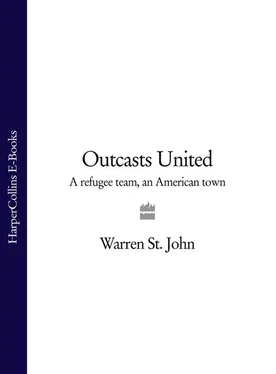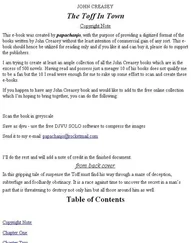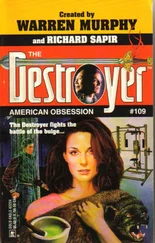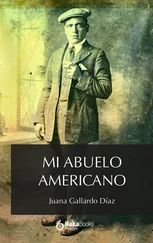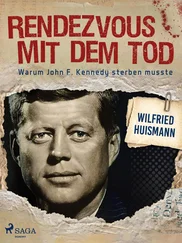When North Atlanta scored first, from a free kick, the team’s coach jumped up and down on the touchline, while across the pitch parents leaped from their folding lawn chairs in celebration: more grating noise. Luma pursed her lips in a tiny sign of disgust and kept pacing, quietly. She made a substitution in the defense but otherwise remained silent.
A few moments later, Christian Jackson shook himself free on the right side, dribbled downfield, and fired a shot into the top right corner of the net: goal. Luma betrayed no reaction other than to adjust her tattered white Smith College baseball cap and to continue pacing. The Fugees soon regained possession; they controlled the ball with crisp passes and moved into range of the goal. A Fugees forward struggled free of traffic to take a shot that flew a good twenty feet over the crossbar and into the parking lot behind the pitch, and soon after, let loose another that was wide by a similar margin. Luma paced. Meanwhile, with each of his team’s shots the North Atlanta coach shouted more instructions to his players, ever more adamantly. He was getting frustrated. If his players had followed his instructions to the word, they could’ve scored against Manchester United. But as it was, they ended the first half trailing the Fugees 3–1.
A 3–1 lead at halftime would have pleased most football coaches. But Luma was seething. Her head down, she marched angrily to a corner of the pitch, the Fugees following behind sullenly. They could tell she was unhappy. They braced themselves for what they knew was coming. Luma ordered them to sit down.
“Our team has taken nine shots and scored three goals—they’ve taken two shots and scored one,” she told them, her voice sharp and strident. “You’re outrunning them, outhustling them, outplaying them—why are you only winning three one ?
“Christian,” she said, looking at the boy who sat on the grass with his arms around his knees, his eyes downcast. “This is one of your worst games. I want it to be one of your best games. I want to sit back and watch good football—do you understand ?”
At that moment, the voice of the North Atlanta coach—still screaming at his players—drifted down the pitch to the Fugees’ huddle. Luma pulled up and turned her narrowed gaze toward the source of the offending noise.
“See that coach?” Luma said, tilting her head in the direction of the screamer. “I want him to sit down and be quiet. That’s when you know we’ve won—when he sits down and shuts up. Got it?”
“Yes, Coach,” her players replied.
When the Fugees took the field for the second half, they were transformed. They quickly scored three goals—an elegant cross, chested in with highlight-reel grace by a Sudanese forward named Attak, followed by a cannon shot from Christian from ten yards out. Moments later Christian dribbled into the box and dummied to his left, a move that left the North Atlanta goalkeeper tangled in his own limbs, before shooting to the right: another goal. The opposing coach was still yelling—“Man on! Man on!”—so the Fugees kept shooting. Another goal. And another. When the frustrated North Atlanta players started hacking away at their shins and ankles, the Fugees brushed them off and scored yet again.
At 8–2, the North Atlanta coach, hoarse now nearly to muteness, wiped the sweat from his forehead with the back of his hand, quietly wandered over to his bench, and sat down, flaccid and defeated. The Fugees tried to stifle their smiles. If Luma felt any sense of satisfaction, it was difficult to discern. She remained perfectly stone-faced. The referee blew his whistle three times to signal the end of the match. The final score was 9–2 Fugees. Christian Jackson had scored five goals.
The teams shook hands and the Fugees quickly ran to the bench for water and oranges, which awaited them in two white plastic grocery bags. A few moments later, the referee approached. He looked to be in his late fifties, white, with a graying mustache. He asked Luma if he could address her players. Luma hesitated. She was uncomfortable handing over her team’s attention to anyone, especially a stranger. A little warily, she summoned her team, who gathered in front of the referee some ten yards from their bench.
“Gentlemen,” he said, “I’d like to thank you. You played the ball the entire game, and you didn’t take any cheap shots. They got frustrated and started fouling, and you didn’t retaliate. So I’d like to commend you on your sportsmanship.” The referee paused for a moment and swallowed hard. “And that was one of the most beautiful games of football I’ve ever seen,” he said.
THIS WAS THE first time I’d ever seen the Fugees play. I’d shown up knowing little about the team other than that the players were refugees and the coach a woman, and that the team was based in a town called Clarkston. In a little more than a decade, the process of refugee resettlement had transformed Clarkston from a simple southern town into one of the most diverse communities in America. And yet few in Atlanta, let alone in the world beyond, had taken notice. Mention the “refugees of Clarkston” and even many Atlantans will ask first if you’re referring to those who had arrived in town from New Orleans after Hurricane Katrina. Next, they’ll likely ask, “Where’s Clarkston?”
I came away from that first game intrigued. I had just seen a group of boys from a dozen war-ravaged countries come together as a team and create improbable beauty on the football pitch. How? Their coach, an intense and quiet presence who hid beneath the brim of her Smith College baseball cap and emerged only to dole out ferocious bits of inspiration or wisdom, presented another mystery. There was a palpable sense of trust and camaraderie between the players and their coach, and an equally powerful sense of fragility in all the tension and long silences. In fact, things with the Fugees were more fragile than I could have realized that day. The team had no home ground, owing to the myopia of local politicians who felt threatened by the presence of these newcomers. The players’ private lives were an intense daily struggle to stay afloat. They and their families had fled violence and chaos and found themselves in a society with a completely different set of values and expectations. Luma herself was struggling to hold her team—and herself—together. She had volunteered—naively, as she would admit—to help these boys on the field and off, unaware of the scope and intractability of their difficulties: post-traumatic stress, poverty, parental neglect in some cases, grief, shattered confidence, and, in more than one instance, simple anger at having to live the way they did. Luma, I would learn, had no particular background in social or human-rights work. She was just a normal woman who wanted, in her own way, to make the world a better place, and who, it turned out, was willing to go to extraordinary lengths to see that mission through. Luma had vowed to come through for her players and their families or to come apart trying, and on several occasions it seemed the latter outcome was more likely.
But more than anything that day, it was the surprising kinship of these kids from different cultures, religions, and backgrounds that drew me into the story and made me want to understand and tell it. One moment in the game underscored this for me more than any other.
THERE WAS A player on the Fugees who was plainly less gifted at football than his teammates—a tiny defender from Afghanistan named Zubaid. In retrospect, it seems he might have been farsighted. When the football rolled his way, he would draw his foot back, swing his leg with all his might, and as often as not, miss the ball entirely, with all the awkward, unalloyed zeal of a batter swinging for the fences and whiffing. After this happened a third or fourth time, I asked Luma what the boy’s story was; his presence on the field was so awkward that it required some sort of explanation. Luma didn’t seem the least bit offended. In fact, she seemed especially proud that Zubaid was on the pitch. He had never missed a practice or one of the afternoon tutoring sessions Luma required of her players, she explained. He was on the pitch simply because by the standards she’d established for the Fugees, he deserved to be.
Читать дальше
